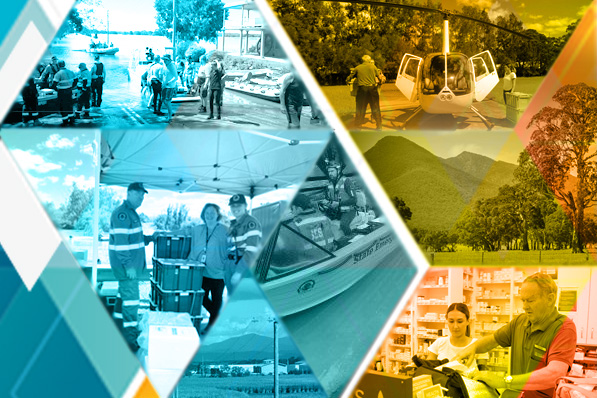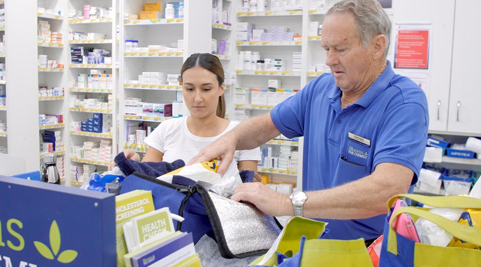The Seventh Community Pharmacy Agreement significantly increased funding for the Regional Pharmacy Maintenance Allowance, which will see another 400 pharmacies eligible for support - an increase of around 50 per cent in the number of pharmacies previously being supported. Regional, rural and remote pharmacies face unique challenges and opportunities.
Today, Forefront begins a series of profiles of these pharmacies which are so pivotal in our health system.
Findlay & Weymouth Pharmacy, Sale, Victoria
Owning a pharmacy in a town with a population of some 10,000 presents challenges which can test pharmacists used to operating in major metropolitan areas.
This is something that Darren Richards, proprietor of Findlay & Weymouth Pharmacy in Sale, Victoria, can attest to first-hand for the past 16 years.
A case in point is if there is a shortage in the supply of a medicine.
“One of the challenges working in regional Australia includes the supply of medications,” he said.
“We have an issue if something goes wrong, we have to wait a good 24 to 48 hours.
“I know, after working in Melbourne, that if something goes wrong there, I can get a hold of medication fairly quickly. It’s just not an option working out here. If it’s cold-chain medicines that gets lost, then you’ve lost it completely.”
Home deliveries also requires more intricate planning.
“In Melbourne you can make home deliveries regularly. If it’s a 5km trip with a guy on a bike, he is pretty unhappy about it, but out here we have deliveries here which are 40 to 50km away.
“Little towns can be in the middle of nowhere and you find yourself wondering if you can go home via this town or that town just to do a couple of deliveries on the way.
“Most people are reasonable and the COVID home delivery service through Australia Post has helped a bit too. But, if somebody needs their medicine urgently, you can find yourself doing a tour of Gippsland.”
Mr Richards said being in a regional area meant a lot of his patients are farmers and this can test his broader healthcare skills.
“The farmers out here are tough and they don’t want to see doctors,” he said.
“A good example was about 18 months ago when I had a farmer come in with his wife and he was talking about how he had had some chest pain, shortness of breath. He got a little bit sweaty at the time.
“This had happened to him three or four times in the last couple of days. His wife was worried, and he was saying: ‘I’ll be right. I’ll just sit down and have a rest’.
“I had to grab him and take him to the doctor where they put him straight into the hospital - he had three minor heart attacks before they actually put some stents in.
“He had been suffering from that, probably minorly, for three to five weeks and it had just gotten worse a couple of days leading up to coming in to see us.
“It’s just a farmer thing out here. ‘I’m alright, everything will be fine, don’t worry’. It’s hard to get the health message across to some of the farmers here.”
Mr Richards said being in a regional town, one of the biggest problems recently was bushfires.
“This year has been a really good year but every second year we get a major bushfire around us,” he said.
“The air is thick with smoke.
“Last year, we had people evacuating from Bairnsdale and Lakes Entrance coming down to Sale.
“Suddenly you had people turning up who had no medicine and no prescriptions, so we were dealing with that.
“Some of the changes the Government implemented made things a lot easier, but when you are dealing with people, it does take time.
“With the smoke in the air and particles in the air, asthma becomes a major problem as well.
“We also get the odd flood out here as well, which brings similar problems of people being trapped here and not being able to get back home, and once again having no medicines.
“Then we get the travellers, the people who are coming for a holiday - they bring everything but their medicines. They’re not hard problems but unusual problems to what you would get in the city.”
But the out-of-metro life suits him well.
“You get to know everybody in town and, as this is a relatively smallish town, when you go for a walk around the streets, you know most people.
“The kids do sport together, so you get to know the parents.
“While they are not all customers or patients, you have a fair idea of who everyone is and that’s not a bad thing.
“I’ve had some knocks on the front door at home saying ‘can you get me this as soon as possible’ when people know who you are, but that’s not a bad thing.
“It’s a nice atmosphere when you know most of the people around you.”

